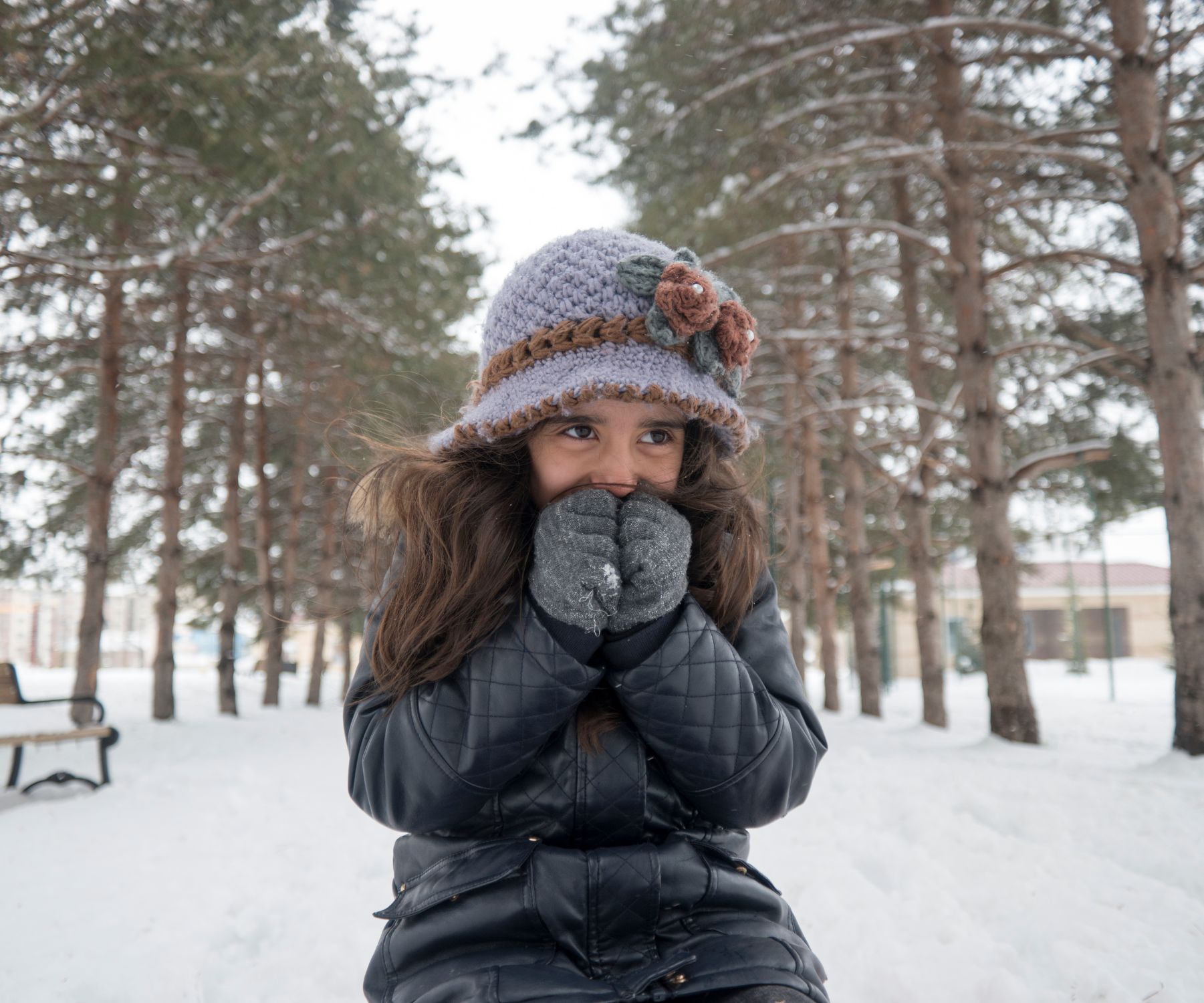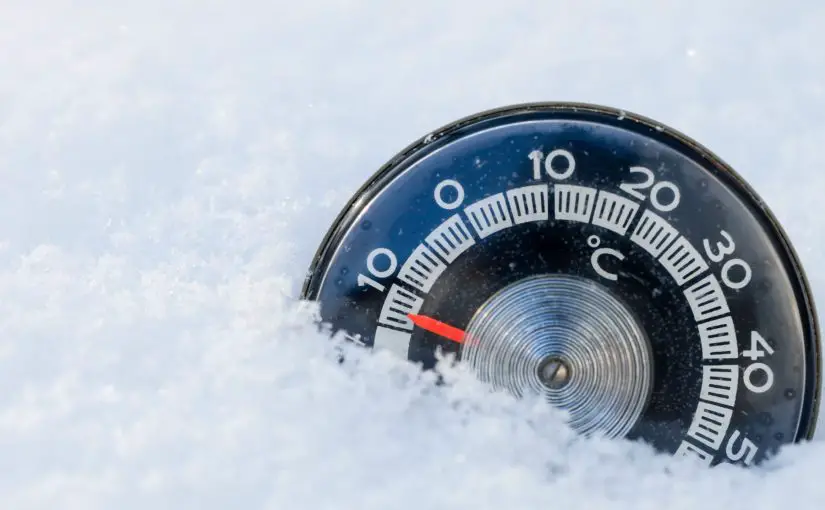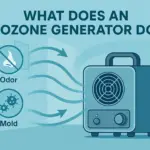Air conditioning units are a significant investment, and it’s important to take steps to protect them during the winter months.
Extreme cold weather can cause damage to your AC unit, leading to costly repairs or replacements.
In this article, we’ll cover the best ways to protect your air conditioner during winter and ensure its longevity and functionality.
Table of Contents
Why should you consider winterizing your AC for Winter?
Winterizing your air conditioner is an essential step in protecting your investment and ensuring that it continues to operate efficiently. Here are some reasons why it is important to winterize your air conditioner.
1. Protect your unit from damage:
During the winter months, your air conditioner is exposed to harsh elements such as snow, ice, and debris.
If left unprotected, these elements can cause damage to the unit, which may result in costly repairs or even the need for a full replacement.
By winterizing your air conditioner, you can prevent these potential issues and extend the life of your unit.
2. Avoid pest infestations
Winterizing your air conditioner also helps to prevent rodents and other pests from nesting inside the unit.
Once these pests take up residence in your air conditioner, they can cause damage to the unit’s internal components, resulting in costly repairs.
By winterizing your air conditioner and covering it with a waterproof cover and vinyl tie-downs, you can keep pests out and protect your investment.
3. Save energy
If you don’t winterize your air conditioner, cold air can seep in through the unit, causing your home to lose heat and leading to higher energy bills.
By properly winterizing your air conditioner and covering it with an outdoor AC cover, you can prevent this heat loss and save energy during the winter months.
Methods to Protect Your AC Unit in Winter
| Method | Description |
|---|---|
| Cover Your AC Unit | Use a breathable cover or tarp, supplemented with plywood and a brick on top to shield from snow, ice, and debris. |
| Build a Dedicated Structure | Construct a protective structure with a roof to keep snow and ice at bay, ensuring ample space for airflow. |
| Schedule a Professional Maintenance Check | Have a professional clean, inspect, and test the unit to address potential issues before the cold sets in. |
| Regular Cleaning | Clean the unit’s exterior and surroundings to maintain efficiency and prevent damage from accumulated debris. |
| Turn Off Your AC | Power down and unplug the unit to save energy and reduce the risk of winter damage. |
 How Do You Protect an Air Conditioner in Winter Weather?
How Do You Protect an Air Conditioner in Winter Weather?
1. Cover Your AC Unit
Covering your AC unit can provide protection from winter elements like snow, ice, and freezing rain.
However, it’s important to avoid covering the entire unit with non-breathable material, as condensation may build up inside the condenser.
Instead, use a breathable cover or tarp, and make sure to cover the top with a slab of plywood and a brick to prevent leaves, sticks, and icicles from falling in .
AC Covering Options and Considerations
| Covering Option | Pros | Cons | Additional Tips |
|---|---|---|---|
| Breathable Cover | Allows moisture to escape. | May not be as durable as non-breathable materials. | Pair with a plywood slab for extra protection. |
| Tarp | Offers sturdy protection. | Can trap moisture, leading to condensation. | Ensure it’s loosely fitted to allow airflow. |
2. Build a Dedicated Structure
Building a dedicated structure for your AC unit can offer additional protection from winter elements and provide a convenient storage space for gardening tools and other supplies.
The structure can be made of wood or other materials and should have a roof to prevent snow and ice buildup.
Make sure to leave enough space around the unit for proper airflow.
3. Schedule a Professional Maintenance Check
Before winter arrives, schedule a professional maintenance check for your AC unit.
This check should entail a thorough cleaning of the unit, inspection of all components, and testing of the system to ensure it’s working properly.
This can help identify any potential issues and ensure your unit is in good condition for the cold weather.
Winter Maintenance Checklist
| Checklist Item | Importance |
|---|---|
| Cleaning | Removes dirt and debris, preventing airflow blockages and component damage. |
| Inspection | Identifies wear, tear, or damage early to avoid costly repairs. |
| System Testing | Ensures the unit operates efficiently and is ready for the next season. |
4. Regular Cleaning
Regularly cleaning your AC unit can help maintain its efficiency and prevent damage.
Start by turning off the power to the unit and cleaning the exterior with a hose or soft cloth.
Remove any debris that may have accumulated on or around the unit, including leaves, grass, and dirt.
Clean or replace the air filter as needed to ensure proper airflow.
DIY Winter Cleaning Guide
| Step | Action | Frequency |
|---|---|---|
| Exterior Cleaning | Use a hose or soft cloth to clean the unit’s casing. | Before covering |
| Debris Removal | Clear leaves, grass, and dirt from around the unit. | Monthly |
| Filter Maintenance | Clean or replace the air filter to maintain airflow. | As needed |
5. Turn Off Your AC
Finally, consider turning off your AC unit during the winter to save on energy costs and prevent potential damage.
Make sure to turn off the power to the unit and unplug it from the electrical outlet.
This can help prolong the life of your AC unit and save you money on your energy bill .
Conclusion: How Do You Protect an Air Conditioner in Winter Weather?
Protecting your air conditioner during winter is crucial for ensuring its longevity and functionality.
Covering your unit, building a dedicated structure, scheduling a professional maintenance check, regularly cleaning your unit, and turning off your AC unit can all help prevent damage and save you money in the long run.
By following these tips, you can ensure your AC unit is ready for winter and continue to enjoy its benefits for years to come.
FAQ
Why is it important to winterize my air conditioner?
Winterizing your air conditioner helps protect it from the harsh winter elements and prolong its lifespan.
Cold weather can damage internal parts, and snow and ice can cause blockages and other issues.
How do I cover my air conditioner in a window?
First, turn off the power to your unit. Then, measure your air conditioner and purchase a cover that fits.
Use bungee cords or vinyl tie-downs to secure the cover in place, making sure it’s tight enough to prevent snow and ice from getting in, but not too tight that it restricts airflow.
How do I cover my AC unit inside?
If you have a wall-mounted air conditioner, you may not need to cover it at all.
However, if you do, make sure to use a cover specifically designed for indoor use, as outdoor covers may not be suitable for indoor environments.
Can I use a tarp to cover my air conditioner?
While a tarp can provide some protection, it’s not recommended as it can trap moisture and condensation, causing damage to your unit.
Should I completely cover my air conditioner or leave some parts exposed?
It’s best to only cover the top and sides of your air conditioner, leaving the bottom exposed for airflow. This will prevent moisture buildup and allow for proper ventilation.
Do I need to clean my air conditioner before covering it?
Yes, it’s important to clean your air conditioner before covering it to prevent dirt and debris from accumulating and potentially causing damage.
How often should I check my air conditioner during the winter?
You should periodically check your air conditioner throughout the winter season, especially after snow or ice storms, to make sure there is no buildup of snow or ice on the unit.
Can I leave my air conditioner uncovered if I live in a mild climate?
If you live in a mild climate, you may not need to cover your air conditioner, but it’s still a good idea to regularly check and clean it to ensure optimal performance.
How do I safely turn off my air conditioner for the winter?
First, turn off the power to your unit. Then, unplug it from the outlet and cover it with a waterproof cover.
Can I use a DIY cover for my air conditioner?
While some DIY covers may provide protection, it’s recommended to use a cover specifically designed for your air conditioner to ensure the best fit and protection.
Look for covers made of breathable material that will allow for proper airflow.
 In conclusion, winterizing and covering your air conditioner is an important step in protecting your investment and ensuring its longevity.
In conclusion, winterizing and covering your air conditioner is an important step in protecting your investment and ensuring its longevity.
Make sure to follow these tips and guidelines to properly cover and maintain your unit during the winter months.





